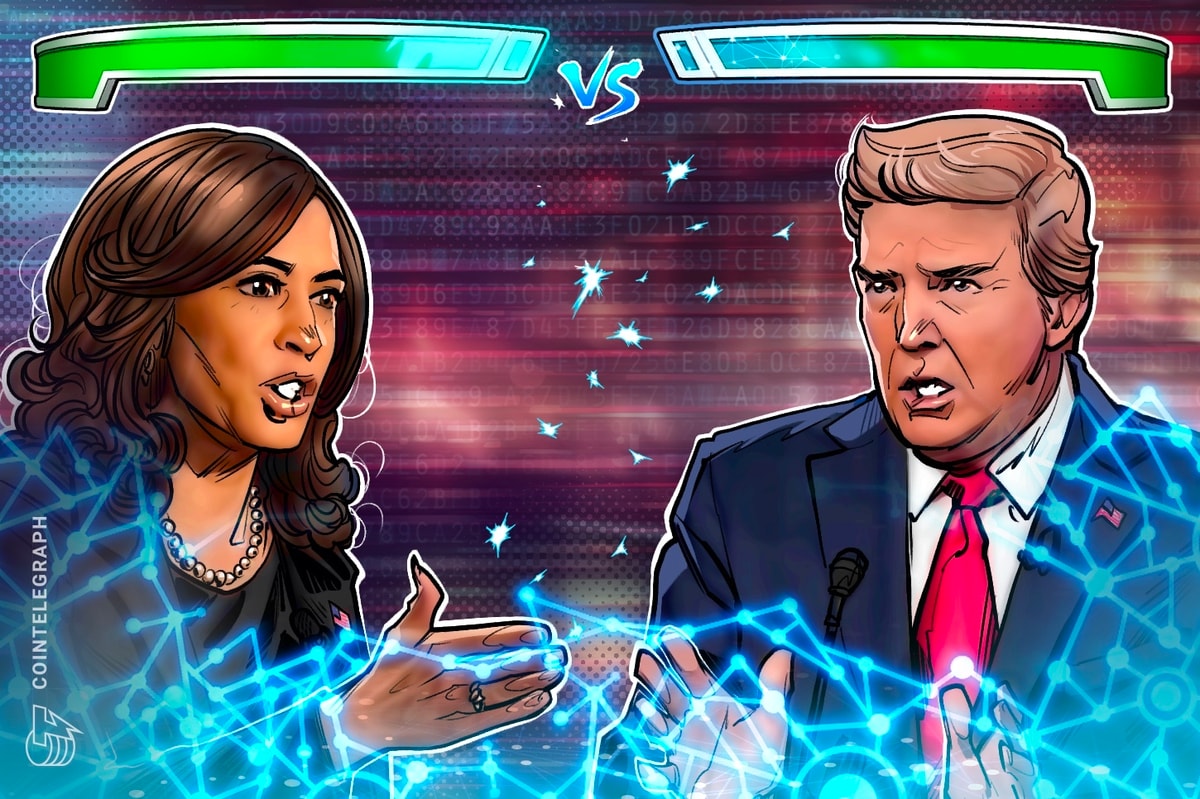Update Nov. 5 at 9:50 UTC: This article has been updated to clarify that Robinhood stated it had traded 200 million contracts, not $200 million in volume.
Bettors are all-in on the United States presidential election, with trading volumes nearing $4 billion across top prediction markets as voters flock to the polls on Nov. 5, according to a Cointelegraph analysis.
Web3-native Polymarket has emerged as the dominant political betting platform. It has seen more than $3.3 billion traded on the presidential race despite being barred in the US, according to Polymarket’s website.
But upstart US betting platforms — including Kalshi, Robinhood, and Interactive Brokers — have quickly gained traction since launching in October.
Together, they have attracted upward of $500 million in volume to presidential election betting markets, according to the applications’ websites.
Republican candidate Donald Trump leads Harris across the top prediction platforms.
As of publication time on Nov. 5, Polymarket pegs Trump’s odds of winning at nearly 62%. Kalshi and Interactive Brokers put them at around 58%, according to the apps’ websites.
Source: Polymarket
Election betting markets let users buy contracts with binary payout structures tied to the outcomes of political events.
They address everything from the US presidential race to Senate campaigns, cabinet appointments, and even New York City Mayor Eric Adams’s possible resignation.
Among the most popular contracts are wagers on the popular vote and the winning candidate’s margin of victory.
Collectively, those contracts pulled close to $1 billion in trading activity across platforms, according to Cointelegraph’s analysis of public data.
Source: Kalshi
Heated competition
On Oct. 7, Kalshi listed contracts for betting on US election outcomes after prevailing in a landmark court battle in September.
This marked the first time an election prediction market has been permitted to operate in the US and paved the way for others to enter the fray.
Since then, competition has been heated.
On Oct. 28, cryptocurrency and stock trading platform Robinhood introduced contracts for certain users to bet on the outcome of the presidential election.
It has already traded some 200 million contracts on the presidential race, according to a Nov. 5 post on the X platform.
Interactive Brokers also launched election betting markets in October. Its presidential election markets have pulled about $50 million in volume.
On Oct. 28, Kalshi started taking deposits in the USD Coin (USDC) stablecoin. On Nov. 5, it added USDC deposits from the blockchain network Polygon, Kalshi said on X.
The Polymarket rules governing payouts for the 2024 US presidential election prediction market. Source: Polymarket
Manipulation fears
In October, Polymarket drew criticism after multiple investigations alleged that approximately 30% of its US presidential election bets came from wash trading — a method of market manipulation designed to artificially boost volume.
Meanwhile, five large Polymarket investors allegedly bought more than half of the shares wagering on a Trump win, according to pseudonymous political bettor Domer.
Payouts for winning Polymarket presidency bettors could be delayed until Jan. 20, 2025, unless the Associated Press, Fox and NBC all agree on a clear winner.
In September, Kalshi prevailed against the US Commodity Futures Trading Commission (CFTC) in a lawsuit challenging the regulator’s decision to bar Kalshi from listing political event contracts.
The CFTC said election prediction markets such as Kalshi threaten the integrity of elections, but industry analysts say they often capture public sentiment more accurately than polls.
“Event contract markets are a valuable public good for which there is no evidence of significant manipulation or widespread use for any nefarious purposes that the Commission alleges,” Harry Crane, a statistics professor at Rutgers University, said in an August comment letter filed with the CFTC.
In August, financial data and news service Bloomberg LP added election odds data from Polymarket to its Terminal.
Magazine: AI agents trading crypto is a hot narrative, but beware of rookie mistakes











